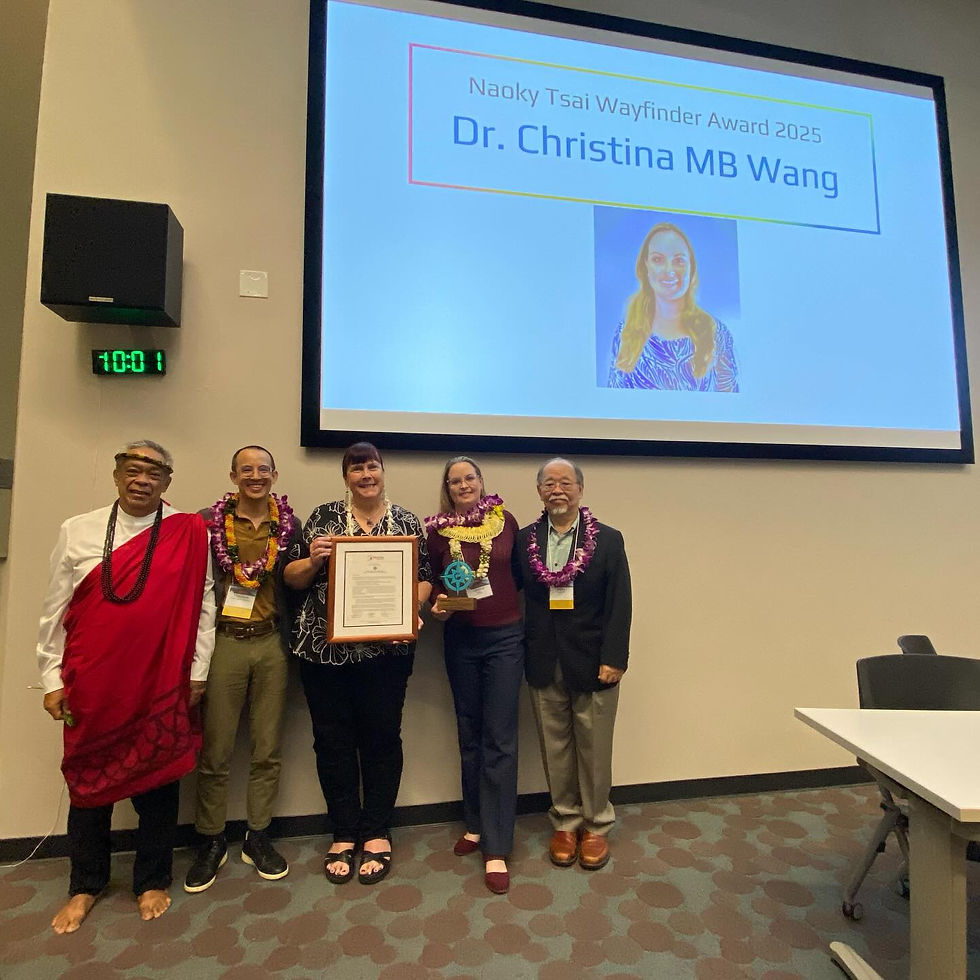2025 LEGISLATIVE UPDATE
- HHHRC
- May 23, 2025
- 3 min read

Securing Hepatitis Prevention Program Funding (SB 1431): Roughly $600,000 in state funds will be dedicated to building the Department of Health’s capacity to conduct disease surveillance and investigation and support expanded community-based testing, immunization, care, and treatment. The federal Centers for Disease Control and Prevention has declared viral hepatitis a “winnable battle,” meaning that significant progress can be made in a relatively short period of time.
For more information on Hawaiʻi’s ongoing hepatitis elimination strategy, visit the (HFH), a coalition to increase awareness of and access to viral hepatitis and harm reduction services across the state. HFH also has a of those impacted by viral hepatitis, including those who have been cured of hepatitis C.
Improving Syringe Access across Hawaiʻi (): Hawaiʻi’s publicly funded syringe exchange program, administered by HHHRC, has successfully kept HIV rates low among people who inject drugs for over 35 years. Should it be signed into law by Governor Josh Green, Hawaiʻi will move from a one-to-one exchange model to a needs-based distribution, in alignment with best practices. The latest annual report on the program is .
Grant-in-Aid Funding for Medical Legal Partnership (MLP): HHHRC received a $20,000 Grant-in-Aid from the legislature to help support its MLP with the Legal Aid Society of Hawaiʻi. The MLP serves HHHRC clients and participants across its programs to address health-harming legal needs, including the procurement of identity documents, social security numbers and cards, insurance navigation, and disputes with utility companies and landlords. Without the MLP, HHHRC case managers would return to committing many hours each week to assisting clients with navigating bureaucratic processes, supplanting other work to support client health.
True Cost Coalition & Partners in Care: HHHRC Policy & Advancement Manager Nikos Leverenz was actively involved this past legislative session with the True Cost Coalition (TCC), which is comprised of over 70 community-based nonprofit organizations that seek to ensure that government contracts, which have fixed terms for years, reflect the actual costs of providing those services. The legislature moved three bills relating to addition funding for the Department of Human Services, Department of Health, and state Judiciary. While no additional funding was ultimately provided, the final budget did include $50 million in Grant-in-Aid funding that could be disbursed during a forthcoming special session of the legislature.
Leverenz also led HHHRC’s advocacy with (PIC), an alliance of service providers in Oʻahu’s continuum of care for homeless persons. Throughout the session, PIC met with legislators throughout the session and with the House Speaker and Senate President toward the end of the session. Importantly, House Housing Chair Lisa Marten successfully placed funding for the state’s Homeless Programs Office in the base budget for the Department of Human Services. This ensures funding will not have to be an item requiring concerted advocacy during each budget biennium.
Ongoing Budget Uncertainty: With the larger federal budget picture likely to remain unclear until this fall, state government and service providers across many sectors face a period of protracted uncertainty. The federal government’s lackluster response to national disasters in recent months does inspire confidence, among other actions. Whatever the case, there will be a special session of the legislature to respond once the federal budget picture becomes more settled. As previously noted, that will include additional funding for service providers to help with foreseeable budget shortfalls.










Drift Hunters delivers a satisfying drifting experience for car enthusiasts. The open tracks and smooth controls make it easy to practice, improve, and enjoy every run.